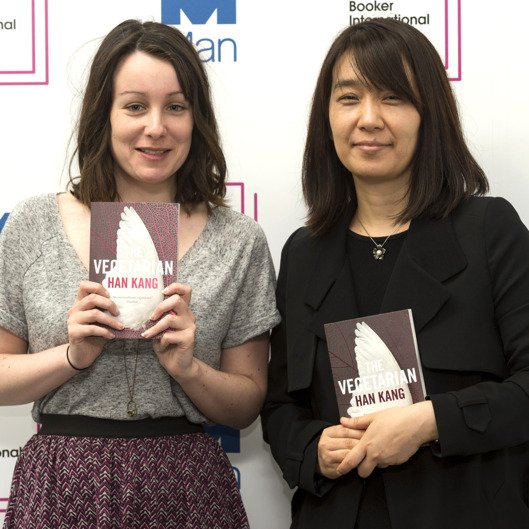Review | The Vegetarian by Han Kang
Previously published in Korean in 2007, a new translation Han Kang’s The Vegetarian by Deborah Smith is this year’s Man Booker Prize winning novel. It is a tale of isolation and repression.
We are introduced to Yeong Hye, the main character, by a man who leads are apparently banal life. That side, visceral descriptions of food and flesh leave little to the imagination. Images of characters eating meat, overflowing IV drips, force feeding and physical abuse are not dissimilar to the nightmarish visions of physical dismemberment upon which Yeong-Hye apparently dwells. The contrast between these images and the more passive natural imagery is striking. Latterly, it seems to reflect Yeong Hye’s desire to retreat into an inert state. To focus solely on this trajectory would be reductive, as this is a layered narrative of a collective desire to escape animal desires and needs, through inactivity, passivity or death.
Yeong’s Hye’s change in diet reveals an altered mental state, but it also brings repressed emotion in other characters to the surface. The seemingly serene woman caught in the middle of events is not granted a narrative voice, aside from sporadic, italicised passages. Filling us in are the characters who feel themselves alienated by her decision to cease eating meat. Yeong Hye’s husband, her brother in law and her sister each narrate one of the book’s three sections. Yeong Hye herself is a constant yet distant presence, increasingly inscrutable to those around her.
Her husband’s response to Yeong Hye’s decision is unsympathetic to his wife’s mental state. He does not give much thought to what is happening outside of the superficial professional/social sphere in which he operates. However, when she will not yield to reason, or pressure from her family, he is incredulous.

Mr Cheong’s ambition is to build a life in which his mediocre talents (and physique) are accommodated. He was initially attracted to Yeong Hye’s apparent normalcy, feeling he would not have to make any special effort. Though Mr Cheong is dismayed at the disruption to the neat life he has created, he does not seem like one to feel overwhelmed or oppressed. Despite his self-proclaimed mediocrity, it is soon revealed that he is capable of abuse and callous self-interest.
Yeong Hye’s brother in law is a video artist who seems to be struggling to realise his vision. He also appears a more sensitive character than Mr Cheong, though he also has a negative opinion of his body. His enlisting of the increasingly isolated Yeong-hye in his latest project initially seems to draw her out of herself (at least as far as he can see). He soon loses track of his creative vision amidst repressed desire of his own, becoming exploitative of the central character. Rather than opening up a debate on the ethics of artistic creativity, it seems more like () is, quite literally, projected his own fantasies on Yeong-Hye.
Yeong Hye’s sister, In Hye, is the only one left to visit and care for her. She is also the only one of three who reflects at length on her own actions. She reflects on how her coping methods for living with their aggressive father left Yeong-Hye exposed to his violent temper. She attempts to engage, but Yeong Hye’s stubborn desire to disconnect is at odds with her own instincts towards survivial, through reticence and self-denial. It transpires that her husband’s creative endeavours made him emotionally unavailable, similar to Mr Cheong in his commitment to mediocrity. Though she reflects on their relationship, she shuts him out. She worries about the effect her own emotional distance will have on her own son, but perseveres all the same.
Though the events of The Vegetarian take place largely within a single extended family unit, its implications are disturbing. Kang does not allow the reader to look away as they bear witness to scenes of abuse and trauma concealed within an outwardly normal family. Despite the intensity of the prose is matter of fact, leaving us to consider the physical and mental disintegration of the female characters. Amidst the self absorbed and the obsessive behaviour of their male counterpart, they persevere, largely in silence.

